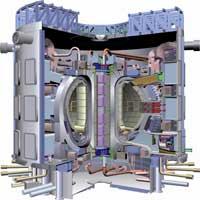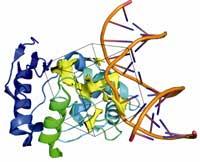Home computers at the service of scientific research

It is known that in the scientific and technological field, progress is being made constantly, with more and more numerous and increasingly complex advances. However, often all these issues are strange and incomprehensible to non-experts, so the distance between citizenship, science, and knowledge tends to increase.
To deal with this, and in collaboration with other entities, the General Council of Scientific Research (CSIC) of Spain launched in 2008 an innovative project called Ibercivis. Since then it has managed to connect to 18.000 users, of which two thousand do it daily. “Researchers from Spain, Portugal and South America participate. Ibercivis continues to grow and we are proud. In addition to a new resource for computing, it has already become a social network”, explains the Aragonese scientists who have promoted the project.
Precisely, in recent months, experts analyze Ibercivis itself, which wants to know closely how thousands of citizens collaborate with science as a non-profit social network.

Among other things, Ibercivisa began its journey with a research process aimed at finding new sources of energy for the future. (Photo: Ibercivis ) .
Distributing domestic tasks
Computers are basic tools for scientific research. And those used in the laboratory are similar to the PCs found in any home. The truth is that these devices capable of performing a billion operations every second are often used at some times of the day and their potentials are not taken full advantage.
In view of the fact that the scientific projects currently being developed require a great computing power, the researchers found that this could also be achieved from home computers. And with that challenge Ibercivis was born.
For example, to see how the molecules react it is necessary to perform millions of virtual trials, for what would need an expensive “super-computer” of great power. Well, instead of performing any calculation on a single device, the project can be divided into small parts, and the work to be done can now be transferred to the computers of citizens through a computer program.
Non-complex operation. Anyone wishing to participate can register on the Ibercivis website, download a program and select the research that interests you. It includes nine scientific applications of fusion, materials, proteins, neurosciences, health or quantum physics.

There are also studies that seek drugs to fight diseases such as cancer, to which this virtual image corresponds. (Photo: Ibercivis ) .
Once the selection has been made, the user becomes part of a customer database. In Zaragoza and Lisbon these “clients” have computers capable of knowing when to connect to the Internet and when the device is not used. And then his role is directed.
For example, if the citizen has decided to work on the project to search for drugs against cancer, they send a virtual molecule to see if it is viable or not, so that the computer can perform all the necessary tests on it. The process lasts five minutes and the personal computer sends the results to a center of Cáceres responsible for collecting all the data.
Ibercivis works at times when the home computer is not used and is prepared not to affect the performance of the devices. “That is why we say it is a small contribution to a great end,” the promoters said.
Published in 7K.
Buletina
Bidali zure helbide elektronikoa eta jaso asteroko buletina zure sarrera-ontzian











